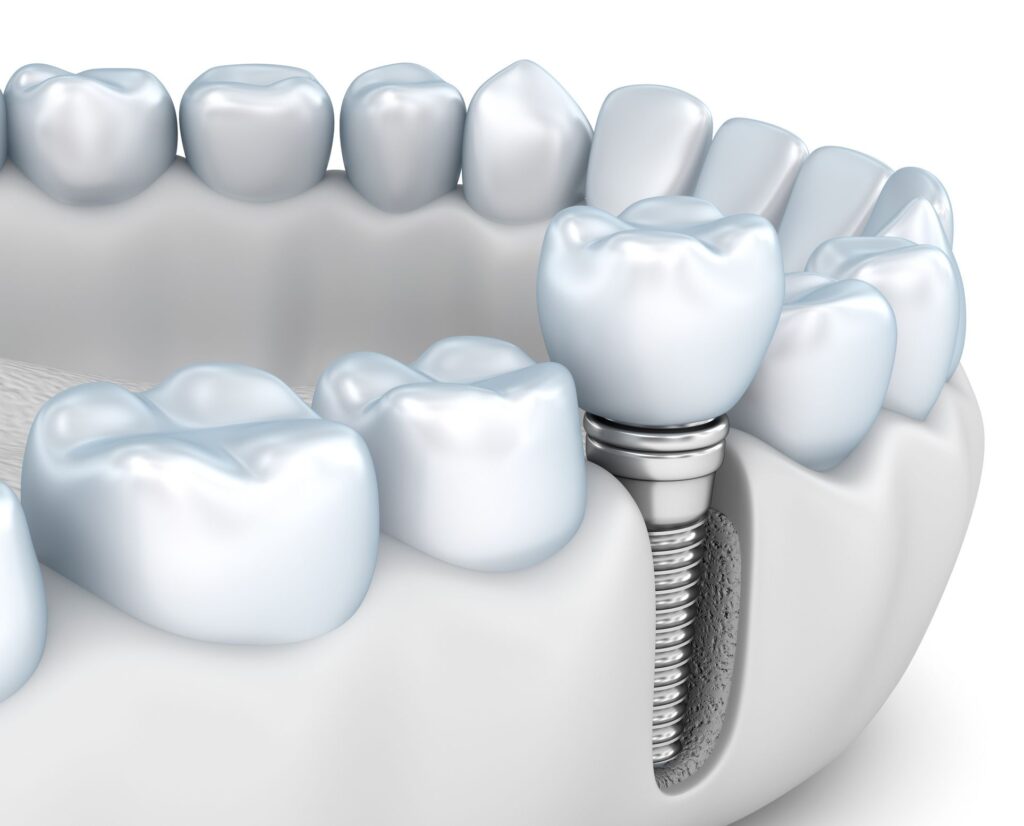Missing teeth can severely disrupt your everyday life. You might struggle to perform oral functions and feel self-conscious about gaps in your smile. Your dentist can replace one or more lost teeth with restorative dental solutions.
Dental implants can provide the most comprehensive benefits when it comes to tooth replacement. They can help you avoid further dental complications from tooth loss, especially for your jaw. Read on to learn more about implant dentistry and how this dental fixture can preserve your jawbone health.

What Happens to the Jaw When You Lose a Tooth?
A healthy dental patient has a full set of teeth, with each tooth extending below the gum line in a root that reaches the jaw. The tooth root stimulates the bone there, keeping it strong and stable.
If you lose a tooth, the jawbone no longer receives stimulation and begins to deteriorate in the tooth root’s absence. This will result in the appearance of facial sagging as well as the shifting of remaining teeth, impacting your bite. You cannot stop this effect without help from your dentist in the form of tooth replacement.
How Do Dental Implants Affect Your Jawbone?
A dental implant is a tooth replacement solution in which a dentist will surgically place a titanium post anchor into the patient’s jaw. There, it will fuse with the jawbone to serve as a secure foundation for prosthetic teeth.
The anchor also replaces the missing tooth root, creating stimulation for the jawbone once again. This stops the bone from degenerating and, in some cases, can encourage lost bone to regrow.
Therefore, patients can experience filled gaps in their smile, restoration of oral capabilities, and the prevention of further dental health complications with this treatment. The benefits can last for twenty years or longer. Removable tooth replacements like dentures only replace teeth above the gum line, so you will not experience this added benefit for your jawbone.
Can My Jaw Successfully Support a Dental Implant?
The advantages of implant dentistry seem clear, but not every patient can qualify for this type of tooth replacement treatment. A dental implant requires enough stable jawbone and gum tissue to support the fusion of the anchor with the bone.
If too much bone is already lost due to missing teeth, this process cannot occur successfully, and you will not support the dental fixture. A failing dental implant can be painful, will feel loose and unstable, and will require removal from your dentist.
A dentist will evaluate your oral health, including your jawbone structure, using x-ray imaging before proceeding with this treatment. If your jaw is not strong enough, they might suggest a bone graft to add stability to the jaw that might ultimately sustain an implant once healed.
If this is not feasible, you can talk to your dentist about alternative ways to replace missing teeth. Learn if implant dentistry can restore your smile by scheduling a dental consultation today.
